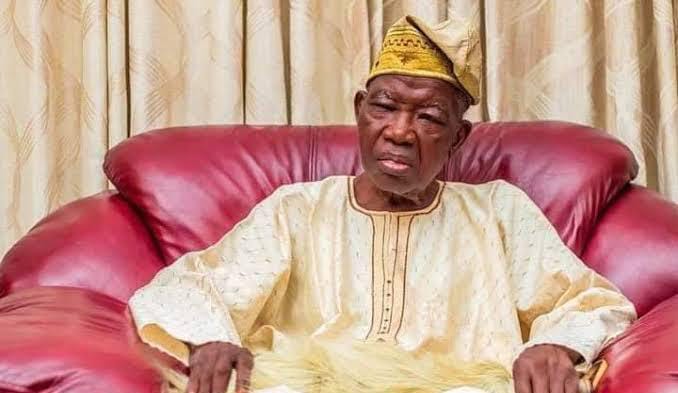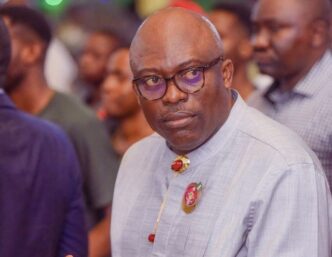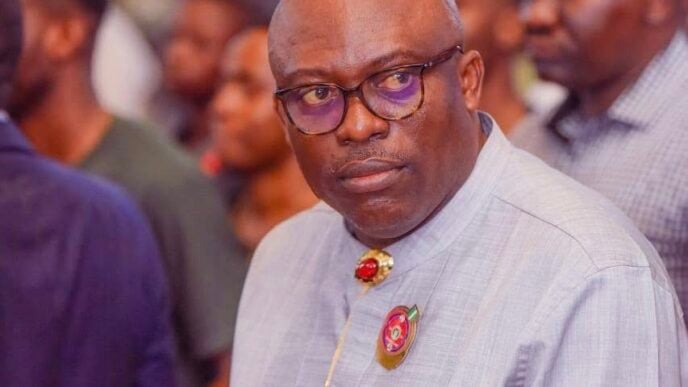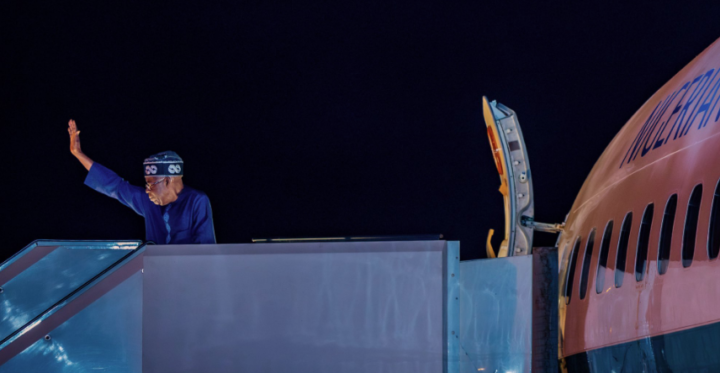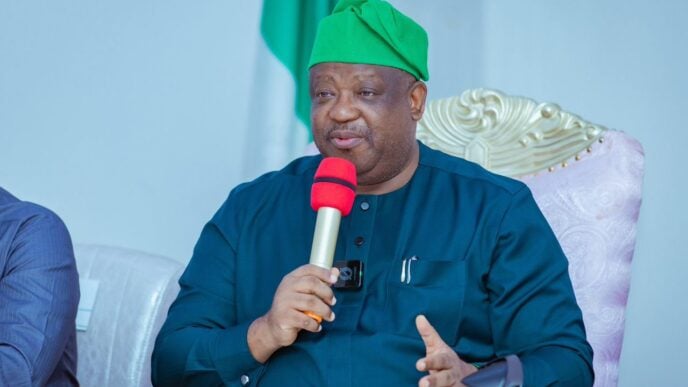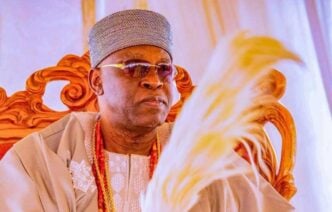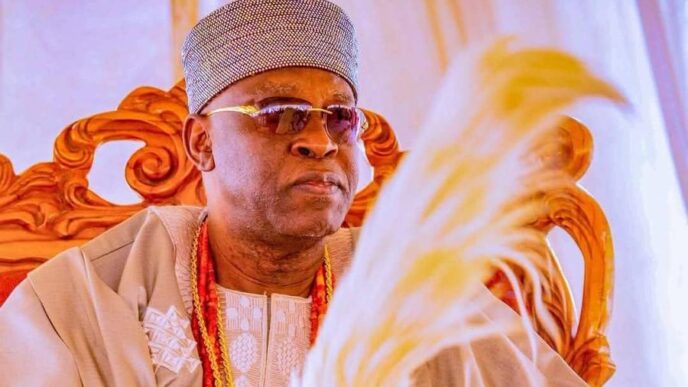"Peace" written on the sand at the beach during sunset, photo with copy space
Yes, peace as the ultimate desire of engaging with issues of conflict.
Nigerians may afford to be ignorant of certain current concerns of national importance, but certainly not those involving the Uromi killings and the protracted Plateau pogrom on account of their deadliness and possible boundlessness. Yet, they broke out too soon after the unsettling Ifon-Ilobu-Erin-Osun conflagration for which alarmists canvassed for emergency rule in Osun State.
Accusations and counter-accusations are flying in different directions, but these won’t solve the problems. Tragically, the incidents seem ordinary to the el-Rufais, Atikus and Obis neck deep into politicking, which some also argued had been triggered by Seyi Tinubu’s exhibitionist spectacles in different northern states. The unnerving disturbances won’t stop President Bola Tinubu either from vacationing in France. Yet, the price we are all paying in emotion as well as with resources being plundered is hardly quantifiable.
The people, particularly the grassroots encircled by the chains of the crises, see no respite coming soon. What with the hope-shattering signal touted by the daring stealing of no other car than that of the office of the National Security Adviser at the National Mosque, Abuja? Worse, personnel of the legacy media with little or no knowledge of conflict-sensitive reporting, together with the ubiquitous bloggers, including mindless content creators, have been feasting on related spectacles of violence bourgeoning by the day, around the country.
Advertisement
But for how long shall we resign to fate? The answer to this question was the goal of a self-motivated collective called the Society for Peace Studies and Practice. It has endured years subsisting on the sweat of members only. It has leaned on the sterling leadership provided by the founder, who has also refused to be daunted by the overwhelming weight of the multiplying conflicts. This is Professor Isaac Olawale Albert.
Unless you’re ready to be conscripted into working for peace, you may not bother initiating any relationship with Prof Isaac Olawale Albert of the prestigious University of Ibadan. He talks and acts peace. He markets peace ceaselessly and enjoins everyone around him to do peace. From 2007 to date, this is what Nigeria’s, perhaps, Africa’s pillar of peace scholarship has done not only with his students in Nigeria, across different African countries as well as the UK, but even outside of formal settings.
Unlike my favourite teacher in my undergraduate years at Ilorin, Prof Olu Obafemi, my leader in this specialised development realm of Conflict Resolution, Prof Isaac Olawale Albert, isn’t known to be an ideologue. Rather, he is a generalist in welfarism. Most fundamentally, he is a most persistent force for peace. This spirit of perseverance with distinction, Professor Albert has passed on to the current leaders of SPSP and the rest of us.
Advertisement
For two days, SPSP took advantage of technology to democratise quality knowledge of conflict management. The organisation ran an online induction training programme for new members spread around the country. Among them are traditional rulers, army generals, top media men, business leaders and upcoming scholars. The assembly of the resource persons for the two-day programme was as inspiring as diverse.
As if to demonstrate that there was no way conflict could be sufficiently discussed without the victims, especially scholar victims, Professor Chris Kwaja and Dr Lydia Umar from Plateau and Kaduna states, respectively, were made to do justice to two indispensable subjects. Has it not been repeatedly argued that whoever gets pinched by some shoes feels it the most? On Friday, April 11, Dr Umar spoke on Community Engagement: Gender Considerations and Standard Operating Procedures, while Dr Kwaja focused on Track One Diplomacy: Government Policies and Community Engagement.
If the focus of the presentations of the duo of Prof Kwaja and Dr Umar effectively covered two distinct tracks of diplomacy, the central track of the entire nine that make up multi-track diplomacy was assigned to yours sincerely. It was a most treasured opportunity to share a correct understanding of the concept of communication in this context, as well as applicable strategies susceptible to varying forms of domestication. For the professionally adventurous participants and others too, samples of previously published conflict mitigation supportive media articles authored by yours sincerely were also shared out through responsive links.
But the engagement on the core subject of communication fashioned by the organisers was even well sequenced, starting off from conceptual clarification, demonstrated even with the reworking of the original topic. The presentation on Grassroots Efficient Communication, therefore, sought to make participants appreciate the need for better reckoning with the basic exercise of communication at the grassroots level.
In clear terms, the participants were reminded that such was the extent of the importance that African societies attach to communications that mere greetings are deliberately protracted to demonstrate appreciation for concerned persons’ values and to reassure each other of peace
Advertisement
The session thus proceeded on to highlight certain principles germane to communications at the grassroots level to guarantee peace. Key among these is inclusivity, which is no less prized by the sustainable development goals. This is to ensure that no matter the composition of the community concerned or focused by any communication, every segment must feel ‘carried along’ with the messages as well as their presentation in both form and content.
In addition to using the legacy media of the print and the broadcast genres, trendy digitech-driven media platforms should also be deployed to make for ease of access, virality and even at good speed in an age in which assorted information keeps competing for attention from numerous platforms.
With the liberalisation of the broadcast media, therefore, comes the caution that communities interested in setting up community broadcasters must endeavour to expose their dedicated team of volunteers to relevant training modules to avert possible unpleasant repercussions.
The timeliness of SPSP’s initiative, one must note, is its coincidence with what I reckon as the golden age of the National Orientation Agency, anchored by Mallam Lanre Issa-Onilu. Onilu has revived an otherwise dead wood, ensuring that the agency is unprecedentedly activated to give the widest reach to select information on government activities. Not only does it now serve regularly, but it also engages all viable channels.
Indeed, it recently proved to the world that it equally has reliable capacity for research findings of which could be fed into the legacy media as much as the numerous blogs, as may be convenient for them. Who is in doubt that the alleged mishandling of the loans from NELFUND to students may be combustible and ignite nationwide disturbance? But for NOA, all the dirty linings exposed may just keep thickening till they become too bad to manage. Yet this is an intervention that the self-acclaimed government of competence fashioned to stem part of the heightening tension in the tertiary education sector.
Advertisement
NOA can get to accomplish far more than intermittent success in research with a focused collaboration with SPSP, so well populated with skilled researchers available in all parts of the country, with an uncommon commitment to the peace of their respective communities and the nation as a whole. Yet, they keep undertaking training such as was concluded on Friday, April 11, 2025.
Professor Tunde Akanni is a media and conflict expert based at the Lagos State University, LASU. Follow him on X:@AkintundeAkanni
Advertisement
Views expressed by contributors are strictly personal and not of TheCable.


